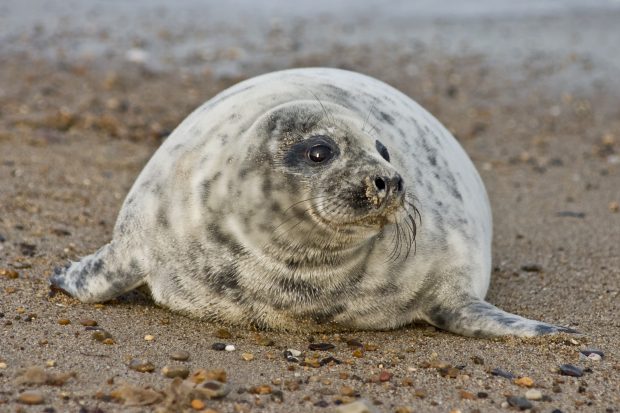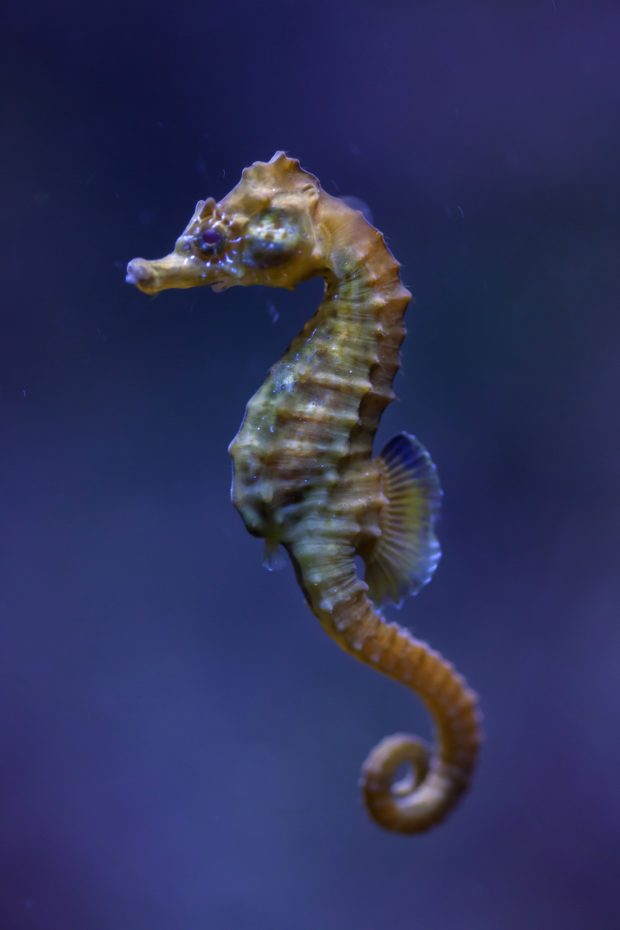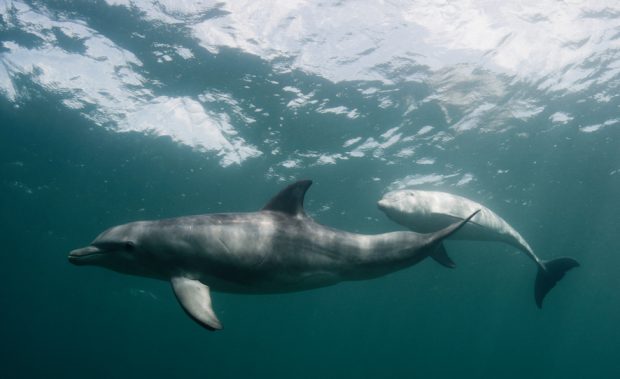Getting too close to wild animals, overstaying our welcome and crowding young animals can be detrimental to them. Disturbance can lead to animals abandoning favoured feeding and breeding sites and reduce reproductive success.
For most people causing disturbance is unintentional and therefore we have written this blog to explain how people can enjoy marine wildlife without disturbing them.
Dolphins, porpoises and whales
All dolphins, porpoises and whales are protected by wildlife legislation, and it is an offence to disturb these animals. Penalties for these offences can include imprisonment and fines.
You may have heard about Benny the Beluga whale who found his way into the Thames. This led to Highways England phasing underwater testing on a River Thames tunnel project and 5th November fireworks celebrations cancelled so Benny wasn’t disturbed and distressed.
Disturbance by boats often causes stress and harm to dolphins, porpoises and whales, affecting their ability to feed, breed or nurture their young.
The MMO has previously issued guidance about how to safely watch marine wildlife and recommends people make themselves aware of the WiSe scheme.
Please also do not get in the water with dolphins, porpoises and whales. As well as potentially causing them distress or encouraging habituation to human contact, these are also wild animals and could injure you accidentally.
Seals
Seals are commonly found on the shores around England and can be very interesting to watch. A common misconception is that if a seal is out of the water it must be in distress, but this is often not the case. It is more likely that they are simply resting, especially if the sea is rough.
If you do encounter seals on the beach, keep your distance and avoid large groups and pups. If you have a dog with you, please ensure that it is kept on a lead to avoid stressing the seals.
If you spot seals when out on a boat or jet-ski keep moving slowly and quietly with a predictable course, and make sure you don’t feed them!

Seahorses
There are two species of seahorses which can be found in UK waters; the spiny seahorse (Hippocampus guttulatus) and the short-snouted seahorse (Hippocampus hippocampus), both are protected under the Wildlife and Countryside Act 1981. You must have a wildlife licence if you are diving or snorkelling and intending to search for seahorses or to do something likely to disturb seahorses such as taking photographs or filming.

Photography
Many of us now have a camera with us at all times and it can be exciting when enjoying the outdoors to take a photo of wildlife. Remember you should not try and take a photo if it will distress or harm the subject. This could include disturbance, causing anxiety, physical damage and predation.
The Royal Photographic Society’s Nature Photographers Code of Practice outlines how to take great pictures without endangering the wellbeing of the subject.
Protected sites
You must also be aware of sites of special scientific interest (SSSI) and marine conservation zones (MCZs).
It is an offence to destroy or damage any plants, animals, physical or geology features which are designated features of an SSSI or MCZ. Anyone guilty of such an offence may be liable on summary conviction to a fine.
You can see if there are any protected sites in your area by looking at https://designatedsites.naturalengland.org.uk/.
Find out more about the MMO's role in marine conservation, protected species and marine wildlife licences.
For any queries or questions please contact conservation@marinemanagement.org.uk

1 comment
Comment by Neil Garrick-Maidment posted on
Great to see the protection of seahorses mentioned. Thanks Jessica. Here at The Seahorse Trust we are trying our best to understand seahorses in the British Isles and all our work is done under license from MMO
Neil Garrick-Maidment
Director
The Seahorse Trust